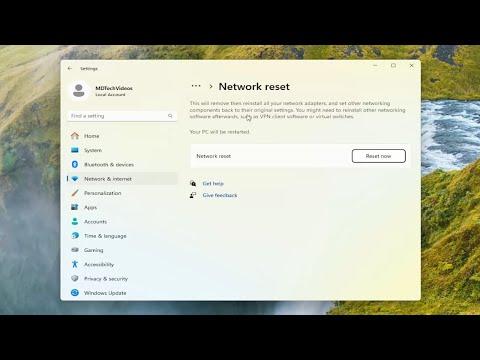I remember the first time I encountered the issue of my internet disconnecting whenever I tried to connect to my VPN. It happened on a particularly frustrating day when I was in the middle of an important work presentation. I had just connected to my VPN to secure my connection and access some company resources, when suddenly, my internet connection dropped. Panic set in as I scrambled to reconnect, only to find that every time I attempted to launch the VPN, the same disconnection occurred.
Initially, I thought it was just a temporary glitch, so I restarted my modem and router, hoping that a fresh connection would resolve the issue. However, after several attempts and no improvement, I realized that the problem was persistent and not going away on its own. I knew I had to dig deeper to find a solution, especially since a reliable VPN connection was crucial for my remote work.
The first step I took was to examine my VPN settings. I delved into the configuration options and realized that my VPN was set to use a specific protocol that might not have been compatible with my network setup. After some research, I discovered that different VPN protocols could interact with network hardware in various ways, and some might be more prone to causing connectivity issues than others. I decided to switch the VPN protocol from the default option to another one, such as OpenVPN or WireGuard, depending on what was available in my VPN client.
Switching the protocol didn’t immediately solve the problem, but it was a good start. I then turned my attention to the firewall and antivirus software on my computer. These security tools can sometimes interfere with VPN connections by blocking certain traffic or ports. I checked the settings of my firewall and antivirus software to ensure that they were not inadvertently blocking the VPN connection. I created exceptions for my VPN application and adjusted the settings to allow it to operate smoothly.
Despite these adjustments, the issue persisted. I then decided to investigate the router settings. Sometimes, routers have built-in firewall features or specific settings that can conflict with VPN connections. I accessed my router’s configuration page and checked for any VPN-related settings or restrictions. I ensured that my router’s firmware was up to date, as outdated firmware could also contribute to connectivity issues. Updating the router’s firmware was a straightforward process, but it required me to follow the manufacturer’s instructions carefully.
Another aspect I considered was whether my VPN provider was experiencing any service issues. To rule this out, I reached out to their customer support for assistance. They confirmed that there were no widespread outages or issues on their end. However, they did provide some valuable troubleshooting tips, such as checking for IP address or DNS leaks, which could sometimes cause connection problems.
One of the more technical solutions I explored involved checking for IP address conflicts. Sometimes, if multiple devices on the same network are assigned the same IP address, it can cause connectivity problems. I went into my network settings and made sure that my device was assigned a unique IP address. I also checked the IP address settings on my router to ensure there were no conflicts.
As I continued troubleshooting, I found that my issue might have been related to the network adapter settings on my computer. I accessed the device manager and examined the properties of my network adapter. There was an option to configure the adapter’s power management settings. Sometimes, power-saving features can cause the network adapter to disconnect to save energy. I disabled the power-saving option and set the network adapter to operate at full performance, which seemed to make a difference.
While all these steps were helpful, I eventually decided to perform a more thorough network reset. I did this by disconnecting all devices from my router, turning off the modem and router, and then powering them back on after a few minutes. After rebooting, I connected my computer to the network and attempted to reconnect to the VPN. This time, the connection stabilized, and I was able to use the VPN without further issues.
In summary, the problem of my internet disconnecting whenever I tried to connect to my VPN was complex and required a multifaceted approach to resolve. By systematically checking and adjusting VPN settings, firewall and antivirus configurations, router settings, and network adapter properties, I was able to identify and address the various factors contributing to the issue. Performing a network reset also played a crucial role in restoring stability to my connection. Although the process was time-consuming and required a fair amount of troubleshooting, I ultimately managed to fix the problem and get back to work with a reliable VPN connection.
